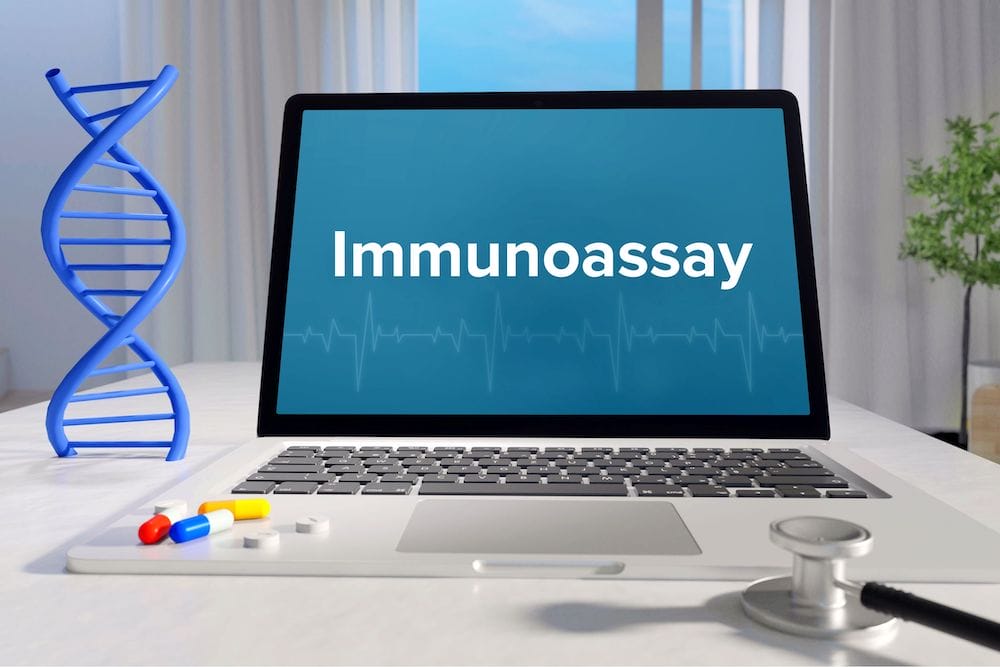An immunoassay analytical technique identifies and measures particular molecules like proteins, hormones, and antibodies. These tests, which have a wide range of applications, are based on the theory of antigen-antibody interactions.
Particular reagents and buffers for the assay, such as the Elisa coating buffer, are an essential component of immunoassays. In a sandwich assay or a competitive assay, they cover the plate with a specific antigen or antibody. Depending on the buffer used, the sensitivity and specificity of the assay may change. Therefore, picking the correct buffer for it is crucial.
Immunoassays are significant because they can produce incredibly sensitive and specific results. They’re an essential tool for identifying and quantifying different analytes, and technological advancements have increased their effectiveness and reduced their cost.
Read on for a thorough explanation of the significance of immunoassays, including their types, uses, and benefits.
Types Of Immunoassays
There are numerous immunoassay formats, each with benefits and drawbacks. The following are some of the widely used immunoassays:
- Enzyme-Linked Immunosorbent Assay
Enzyme-linked immunosorbent assay (ELISA) is a widely used immunoassay that employs an enzyme to identify the presence of a target antigen or antibody.
In this method, samples are incubated with a specific antibody, followed by the addition of an enzyme connected to a secondary antibody. The enzyme causes a color change in the substrate, indicating the presence of an antigen or antibody. ELISA is a preferred method for diagnostic testing due to its high sensitivity, specificity, and ease of implementation.
- Radioimmunoassay
Radioimmunoassay (RIA) is another immunoassay that uses radioactive isotopes to detect the presence of specific antigens or antibodies. Samples are first incubated with a specific antibody, followed by adding a radiolabeled secondary antibody. Radioactivity, which indicates the presence of antigen or antibody, is then measured.
RIAs are highly sensitive but require specialized equipment and trained personnel to handle radioactive materials, limiting their use in specific environments.
- Western Blot
Western blot is an immunoassay used to identify specific proteins in a sample. Samples are separated by size using electrophoresis and then transferred to a membrane. The membrane is then incubated with specific antibodies that bind the target protein.
Bound protein is detected with a secondary antibody conjugated with an enzyme, resulting in a color change. Western blots are widely used in research and are considered the gold standard for protein identification.

Applications Of Immunoassays
Immunoassays are valuable tools in the medical field, and they have a wide range of applications. These applications include the following:
- Diagnostic Testing: Immunoassays are widely used in medical diagnostic testing to detect and measure specific proteins, hormones, and other biomolecules in body fluids. They’re beneficial for diagnosing infectious diseases, cancer, and other conditions that can be diagnosed by measuring particular biomarkers in the body.
- Therapeutic Drug Monitoring: Immunoassays are also used to monitor medicinal drugs, particularly protein-based ones. It allows physicians to measure the concentration of the drug in a patient’s bloodstream and adjust the dosage accordingly to ensure the most effective treatment.
- Research And Development: Immunoassays are essential for researchers in the biotechnology and pharmaceutical industries. Researchers can use immunoassays to measure the activity of drug candidates and study disease mechanisms.
- Environmental Testing: Scientists can use immunoassays in environmental testing to detect and measure specific pollutants, such as heavy metals and pesticides, in water, soil, and air samples. It allows them to monitor the environment’s health and identify potential contamination sources.
- Food And Beverage Testing: Immunoassays are also used in food and beverage testing to detect and measure specific contaminants, such as bacteria and pesticides, in food products. It helps ensure the safety and quality of the food supply.
Advantages Of Immunoassays
Immunoassays have several advantages that make them valuable tools in medical diagnostics, research, and biotechnology. These advantages include the following:
- High Specificity And Sensitivity: Immunoassays are highly sensitive because they can detect low concentrations of an analyte. They also have a high specificity level because they can detect the target analyte precisely. It’s particularly significant in medical diagnosis, where accuracy is of the utmost importance.
- Relatively Simple And Inexpensive: Immunoassays can be carried out without expensive equipment or highly skilled personnel. Hence, they’re a sensible option for many clinics and laboratories.
- Versatility: Analytes ranging from proteins and hormones to drugs and toxins can be detected using immunoassays. Due to their adaptability, they’re a helpful tool for numerous applications.
- Ease Of Automation: Many immunoassays can be automated, speeding up and improving the assay’s effectiveness. It’s beneficial when analyzing many samples or for high-throughput applications.
Conclusion
With the continued advancement of technology, immunoassays are expected to become even more sensitive and specific. It’ll allow for earlier detection, more accurate monitoring of diseases, and more precise measurements of the effectiveness of treatments.
Throughout the year, our writers feature fresh, in-depth, and relevant information for our audience of 40,000+ healthcare leaders and professionals. As a healthcare business publication, we cover and cherish our relationship with the entire health care industry including administrators, nurses, physicians, physical therapists, pharmacists, and more. We cover a broad spectrum from hospitals to medical offices to outpatient services to eye surgery centers to university settings. We focus on rehabilitation, nursing homes, home care, hospice as well as men’s health, women’s heath, and pediatrics.








